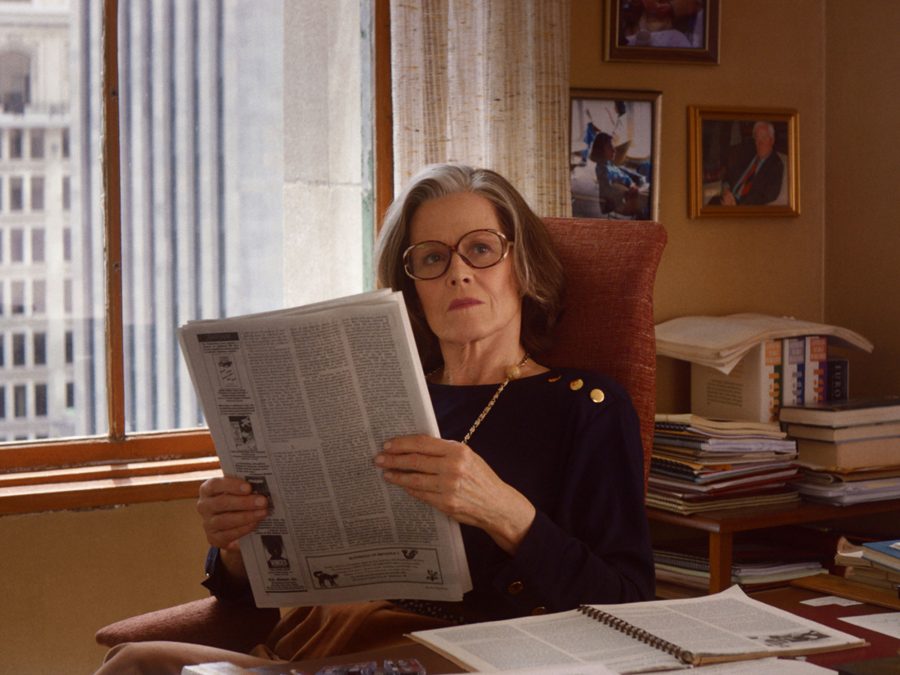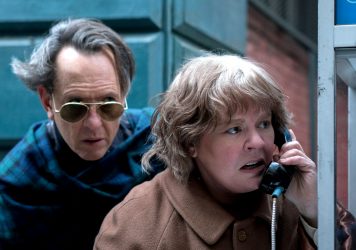An aspiring writer forms an unlikely connection with JD Salinger in this ’90s set literary drama.
The American author JD Sallinger opted to divorce himself from public life after an initial flurry of activity which produced such canonical classics of hair-trigger teen anxiety as ‘Catcher in the Rye’ and ‘Franny and Zooey’.
Philippe Falardeau’s film My New York Year is an adaptation of Joanna Smith Rakoff’s 2014 memoir ‘My Salinger Year’ in which the fortuitous college grad, played here by Margaret Qualley, floats into an entry level position at a New York literary agency that counts the creatively dormant Sallinger as one its key clients.
Joanna dreams of becoming a writer, and she hopes that her broad knowledge of classical literature will allow her to make that leap sooner rather than later. Yet her cold, jaded manager, Margaret (Sigourney Weaver), swiftly crushes that fantasy and gives her the job that no one else wants: reading and then shredding all of Salinger’s fan mail, and then responding with a generic kiss-off letter which offers different variations of, ‘I really don’t care, please go away’.
The wide-eyed ingenue who is taken under the wing of the aloof technophobe seems like fertile ground for chalk/cheese dramatic antagonism, and the main highlight of the film is the barely-masked rancour traded between Qualley and Weaver through carefully worded put-downs and jagged glances.
Elsewhere, Joanna takes regular calls from the big man himself who comes across as a honey-voiced lug, advising his young charge to keep on writing if she wants to make it as an author. And… there isn’t really much more to it than that, as the film pulls in various digressions and vignettes that don’t add up to much at all.

Douglas Booth plays Joanna’s boyfriend, Don, tricked out like an ‘Imagine’-era John Lennon and writing pornographic rape fantasies that he passes off as an honest reflection of his inner soul. There are also various side players who crop up for a single scene to provide Joanna with a bit of extra back story, or make her reconsider her life choices.
Falardeau’s flat, unexciting direction drifts into awkwardness when he jimmies in a stilted and unnecessary musical number, while the script sits on just the wrong side of interesting, despite Qualley’s puckish commitment. There’s the occasional hint that the film might accidentally stumble into relevance, such as when Joanna decides to write fictional responses to a clutch of Salinger fans, hinting at a wider commentary on the Oz-like nature of celebrity and fandom. Yet the idea is quickly discarded as her job dictates she move on to something new.
It’s one of those films that’s entirely pleasant to sit through, but its strange commitment to not being about any one thing ends up making it a forgettable trifle. Cleaving to the episodic structure of memoir leaves it wanting for some thematic heft, and Salinger himself ends up being what Hitchcock refers to as a MacGuffin – a miscellaneous plot device designed to breach the gap between point A and point B.
Its climax, too, leaves a bitter taste, opting to celebrate Joanna’s entitlement over her collected learnings from this eventful year.
Published 20 May 2021
Qualley’s very up-and-coming, Weaver’s an icon, so the potential is there.
Perfectly pleasant, though refuses to do anything that might quicken the pulse.
Lacking in style and substance, would benefit from a major redraft.

Josephine Decker’s stunning anti-biopic of author Shirley Jackson offers a treatise on female creativity and camaraderie.

Melissa McCarthy and Richard E Grant are on top form in Marielle Heller’s melancholy tale of forgery and friendship.